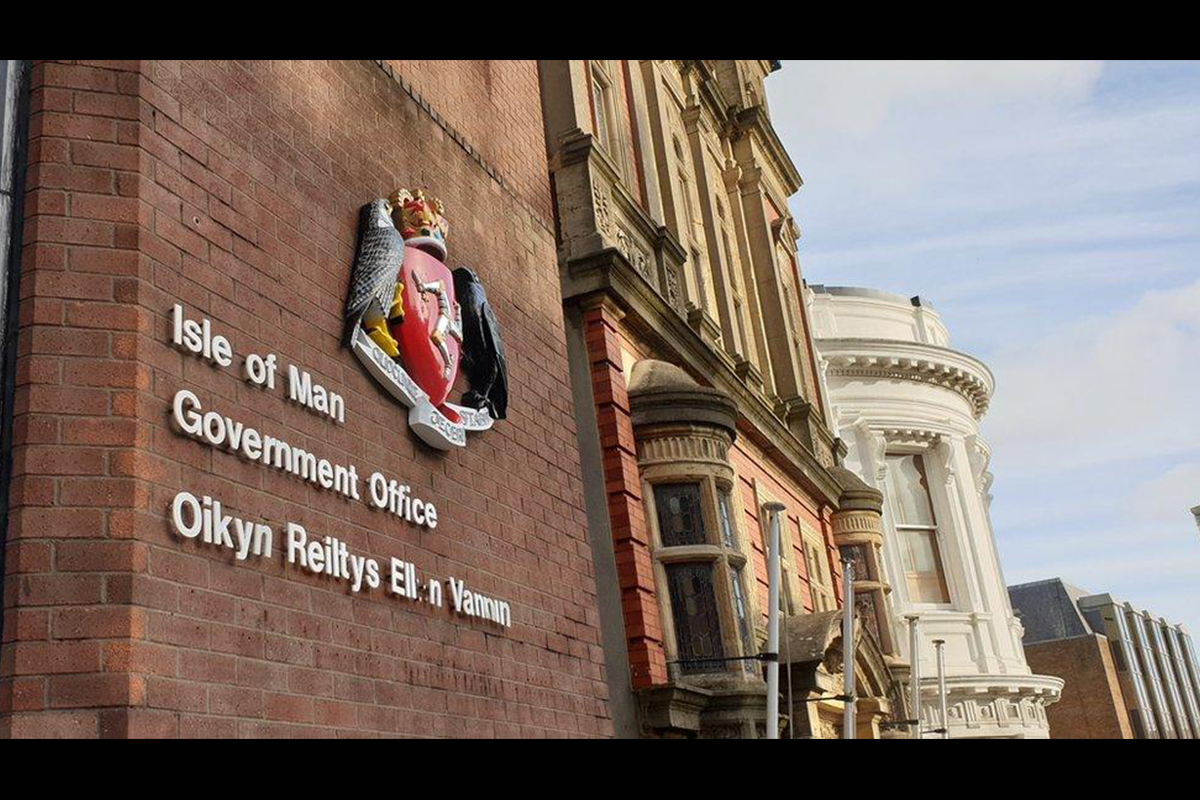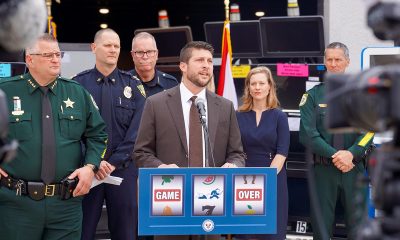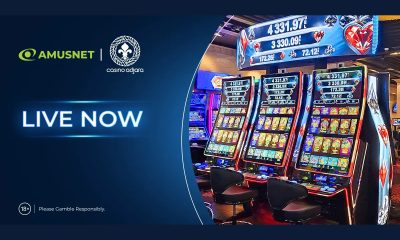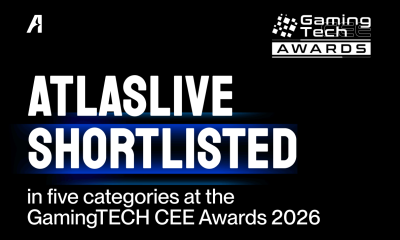Compliance Updates
Florida Targets Fantasy Sports Firms Over Possible Illegal Betting Games

Florida gambling regulators have sent cease-and-desist letters to three daily fantasy-sports operators accused of offering potentially illegal mobile betting games and threatened legal action if the sites don’t immediately stop.
Commission Executive Director Lou Trombetta sent letters warning the three companies that they “may be offering or accepting illegal bets or wagers” from Floridians and “may be promoting and conducting an illegal lottery.”
The alleged conduct is “strictly prohibited in Florida and constitutes criminal activity,” Trombetta wrote.
The letters targeted Underdog Sports, LLC, which is based in Brooklyn, N.Y; SidePrize LLC, also known as Performance Predictions LLC, doing business as PrizePicks, which is based in Atlanta; and Betr Holdings, Inc., which is based in Miami.
In fantasy sports, players can draft rosters of actual athletes, with the winners of fantasy games determined by the statistics of the athletes. Many games, like office pools, last all season.
The three companies offer what are known as “parlay-prop-style” games that could be more similar to sports-betting games that are off-limits in Florida.
“Under Florida law, betting or wagering on the result of contests of skill, such as sports betting, including fantasy sports betting, is strictly prohibited and constitutes a felony offense unless such activity is otherwise exempted by statute,” Trombetta’s letter said. “Accordingly, in Florida, sports betting may be lawfully conducted only pursuant to a gaming compact. … Further, receiving such illegal bets and wagers and aiding or abetting such criminal activities constitute separate felony offenses. … Lotteries are also strictly prohibited in Florida.”
A gaming compact is an agreement reached with the state.
The commission did not send letters to DraftKings and FanDuel, which have dominated the fantasy-sports market in the decade since the online games launched.
It was unclear Friday if the commission would crack down on other operators in the future, but emails show the gambling overseers could be casting a broad net.
“As you might imagine, my exec team asking what the letter means and seeking actionable advice, pretty urgently. Would like to discuss the substance at some point, but if you can help with one question, it would be great. Namely, Underdog operates multiple paid fantasy formats (season-long drafts, daily drafts, pick’em) and I just want to confirm my reading of the letter, which is that the legal conclusion applies to all paid fantasy contests — e.g., all of our contests — and not just particular types,” Nicholas Green, Underdog’s general counsel, wrote Friday to Ross Marshman, the commission’s general counsel.
“Your reading of the letter is correct,” Marshman replied.
John Lockwood, an attorney hired by multiple operators, warned that other companies could be swept up in the crackdown.
“The commission staff confirmed to me that the language in the letter broadly applies to all paid fantasy sports contests, and they are not aware of any paid fantasy sports company operating legally in Florida. We disagree on the merits and will be working with the commission and potentially the Legislature so we can ensure Florida sports fans can continue to play,” Lockwood said.
State lawmakers in the past have grappled with creating regulatory oversight for the fantasy-sports industry, to no avail. Proponents of fantasy sports have insisted that the contests are games of skill, not chance, and thus are legal under state gambling laws.
Trombetta issued the letters as a legal battle continues over a 2021 compact reached by the state and the Seminole Tribe. That deal gave the tribe control over sports betting in Florida.
A “hub and spoke” plan in the agreement would allow gamblers anywhere in the state to place bets online, with the wagers run through servers located on tribal lands. The deal requires sports betting to be “exclusively conducted” by the Seminoles but allows other operators to run fantasy sports contests.
Owners of West Flagler Associates and Fort Myers Corp., doing business as Bonita Springs Poker Room in Southwest Florida, filed a lawsuit challenging the compact, saying it violated federal law and would cause a “significant and potentially devastating impact” on their operations.
A federal judge in Washington, D.C., in November 2021 ruled that the deal violated a key Indian gambling law. But a three-judge panel of the U.S. Circuit Court of Appeals for the District of Columbia in June reversed that decision. The appellate court last week denied a request for what is known as an “en banc” rehearing before the full court.
The pari-mutuel owners filed a motion saying they would ask the U.S. Supreme Court to weigh in, arguing the panel’s decision conflicts with other appellate rulings and “enables an extreme shift in public policy on legalized gaming that, once started, may be difficult to stop.”
Compliance Updates
Isle of Man Govt Publishes its National Risk Assessment (NRA) Covering Money Laundering Risk in Gambling Sector

The Isle of Man government has published its updated National Risk Assessment (NRA) for the gambling sector.
The assessment identifies key threats of Money Laundering (ML) to the island’s Gambling sector (both Terrestrial and Online) and the materiality and impact of those threats. Both terrestrial and online gambling have been given a risk rating, with an overall rating for gambling as a whole. These risk ratings and key findings of the NRA feed into the wider NRA work, ensuring the Island has a comprehensive view of the entire threat landscape.
The NRA aggregates, compares and weighs the findings across all sectors to determine which risks drive national exposure. This ensures the NRA is not hypothetical: it reflects actual sector-level dynamics so that the Island can understand the “bigger picture” with each sectoral assessment piecing together a border threat picture.
It is important that the island has a comprehensive understanding of risk at all levels, which does not reflect poor standards but instead outlines structural features of a sector. A robust NRA demonstrates that the jurisdiction understands its ML risks and applies targeted controls that are appropriate.
Risk Ratings are as follows:
• The gambling sector overall is assessed as medium-high risk for money laundering.
• The online gambling sector has a medium-high risk, reflecting a large number of international customers and transaction volumes.
• The terrestrial gambling has a medium-low risk, reflecting its smaller size, domestic profile and lower transaction volumes.
Key Takeaways
The Sectoral NRA highlights core threats in both the online and terrestrial sectors, including:
• Criminal ownership and control of gambling businesses or B2B services, via front companies and complex corporate structures.
• Exploitation by organised crime groups, including those from East and Southeast Asia, for money laundering, cyber-enabled crime and other illicit activities globally.
• Criminals use false or stolen IDs, synthetic identities, and mule identities to access gambling services and obscure their true identity to bypass due diligence controls.
• For terrestrial gambling, cash-intensive operations and casino-specific instruments remain primary channels for laundering domestic predicate offences.
It also highlights potential emerging threats such as:
• Use of advanced technologies (AI, deepfakes, virtual assets) to obscure identities, automate fraud, and facilitate cross-border transfers.
• Use of “turnkey solutions” (pre-packaged business setups) allowing rapid establishment of operations and access to banking services with minimal experience.
Importantly, the NRA makes it clear that these risks arise in specific circumstances with the sector operating legitimate international structures, strong governance and applying high standards of AML/CFT compliance. Those features that make activity higher risk for misuse should be considered within that context.
The post Isle of Man Govt Publishes its National Risk Assessment (NRA) Covering Money Laundering Risk in Gambling Sector appeared first on Eastern European Gaming | Global iGaming & Tech Intelligence Hub.
Compliance Updates
Wiebe Ruttenberg Appointed as Member of the Board of Directors of the Dutch Gaming Authority

Wiebe Ruttenberg has joined the Board of Directors of the Netherlands Gambling Authority (KSA) on March 1. As a member of the Board of Directors, he will be responsible for Digital Transformation.
Wiebe Ruttenberg has experience as a board advisor at Bunq and SecAlliance and as a guest lecturer in Operational & Cyber Resilience at the European University Institute. He previously served as Programme Director for Cyber Resilience Strategy at the European Central Bank and held various positions at De Nederlandsche Bank (DNB) and the Ministry of Finance.
Michel Groothuizen, Chairman of the Board of Directors of the Netherlands Gambling Authority, said: “I’m pleased with Wiebe’s arrival as a member of the Executive Board, responsible for Digital Transformation. The rise of illegal gambling sites, cryptocurrencies, and AI applications are just a few examples that require the KSA to continue evolving into a data-driven and risk-driven organization, with an innovative toolkit that allows it to tackle illegal providers in new ways. A key challenge in this regard is establishing collaborative relationships with public and private parties, including those within the financial sector. I’m pleased that Wiebe, with his extensive knowledge of and experience with the financial sector, technological innovation, and European decision-making, brings the external perspective the KSA needs in this area.”
The post Wiebe Ruttenberg Appointed as Member of the Board of Directors of the Dutch Gaming Authority appeared first on Eastern European Gaming | Global iGaming & Tech Intelligence Hub.
Compliance Updates
Sweden: Expanded Credit Ban & New Supervisory Actions

The Swedish Parliament (Riksdagen) has adopted an expanded credit ban under the Gambling Act (2018:1138). The amendments enter into force on 1 May 2026, with no transitional period.
Key consequences include:
• A de facto credit card ban for gambling as license holders and agents are prohibited from permitting or facilitating gambling financed through any form of credit.
• The prohibition also covers alternative credit arrangements (e.g., personal loans or similar financing solutions) where the use of credit becomes known to the operator, e.g. through KYC or duty of care interventions. License holders are required to have procedures in place regarding the actions to be taken in cases where they become aware that a customer is using credit to finance their gambling
• Operators must actively inform customers of the credit restrictions, for example in connection with deposits.
Swedish Consumer Agency Report – Review of Withdrawal Practices
On 24 February 2026, the Swedish Consumer Agency published a report assessing gambling operators’ withdrawal restrictions and terms.
The review identifies three key areas of concern for the current online gambling market:
Vague and discretionary wording
Terms including expressions such as “at our own discretion” or references to a “non-exhaustive list” limit predictability for consumers. Such formulations may create a significant imbalance between the parties and risk being deemed unfair.
Excessive verification requirements
Some license holders require extensive documentation at the withdrawal stage, including notarised copies of passports. Complaints show that these requirements are often applied only at payout, resulting in delayed withdrawals or frozen accounts. The authority emphasises that verification measures must be risk-based, proportionate, and not impose unnecessary barriers.
Insufficient transparency regarding withdrawal terms
In certain cases, minimum withdrawal thresholds, wagering requirements, or administrative fees are applied without being clearly disclosed in the terms and conditions. Referring consumers to external sources for key withdrawal rules reduces transparency and may render such terms unfair.
While the report does not have binding legal effect as such, it provides a clear guidance on the the Swedish Consumer Agency’s expectations and the likely direction of future supervisory assessments.
Supervisory Developments
In the early months of 2026, the SGA has initiated a number of supervisory cases.
Supervisory matters are currently initiated and/or pending in the following areas:
• 9 cases concerning B2C license holders’ compliance routines for verifying their cooperation partners, including ensuring that B2B partners hold the required permits, and the internal procedures governing such controls.
• 3 ongoing AML cases.
• 1 ongoing RG case.
• 2 supervisory cases directed at B2B permit holders regarding the provision of gambling software to entities other than licensed B2C operators.
• Additional cases relating to physical lotteries, compliance with information obligations in bingo halls and vessels in international traffic.
The post Sweden: Expanded Credit Ban & New Supervisory Actions appeared first on Eastern European Gaming | Global iGaming & Tech Intelligence Hub.
-

 Comatel6 days ago
Comatel6 days agoCOMATEL CELEBRARÁ UNA FIESTA PARA CIENTOS DE OPERADORES TRAS FINALIZAR EL PRIMER DÍA DE LA FERIA ESPAÑOLA, INTERAZAR
-

 Fotini Matthaiou6 days ago
Fotini Matthaiou6 days agoOctavian Gaming Titles Go Live with Novibet in Mexico
-

 Compliance Updates6 days ago
Compliance Updates6 days agoSpillemyndigheden: New Guidance on Responsible Gambling
-

 Amusnet6 days ago
Amusnet6 days agoAmusnet Introduces its “Jackpot Cards Plus” Island at Casino Adjara
-

 Fast Track6 days ago
Fast Track6 days agoFast Track Spark Lands in São Paulo for Advanced Retention Workshop
-

 Betting and Gaming Council6 days ago
Betting and Gaming Council6 days agoBGC: Government Tax Hike Boost for Black Market
-

 Atlaslive6 days ago
Atlaslive6 days agoAtlaslive Shortlisted in Five Categories at GamingTECH CEE Awards 2026
-

 Conferences7 days ago
Conferences7 days agoBetConstruct AI to Redefine the Brazilian iGaming Landscape at SBC Summit Rio 2026































